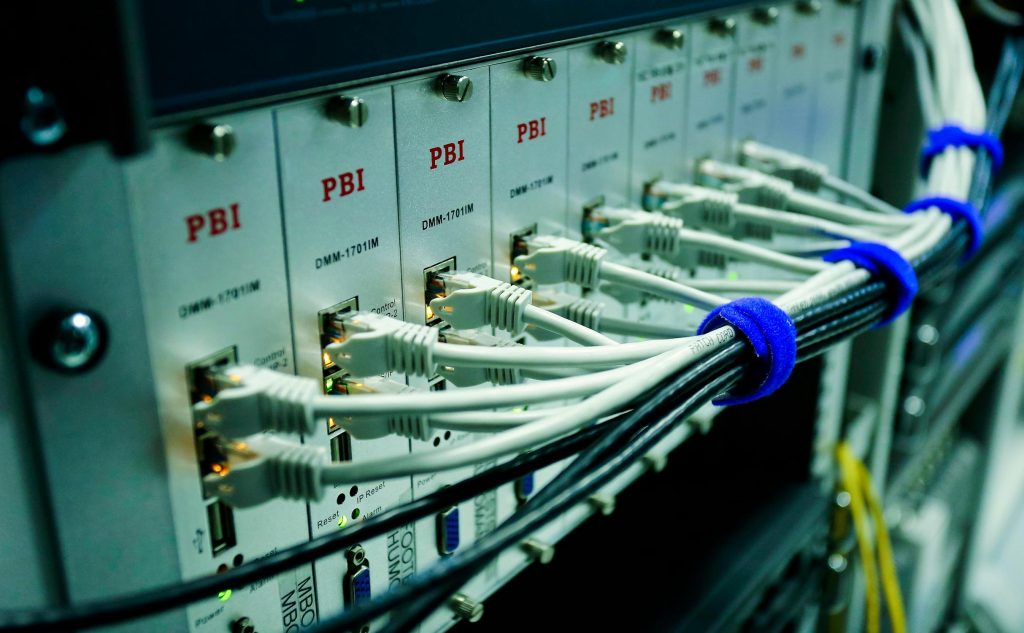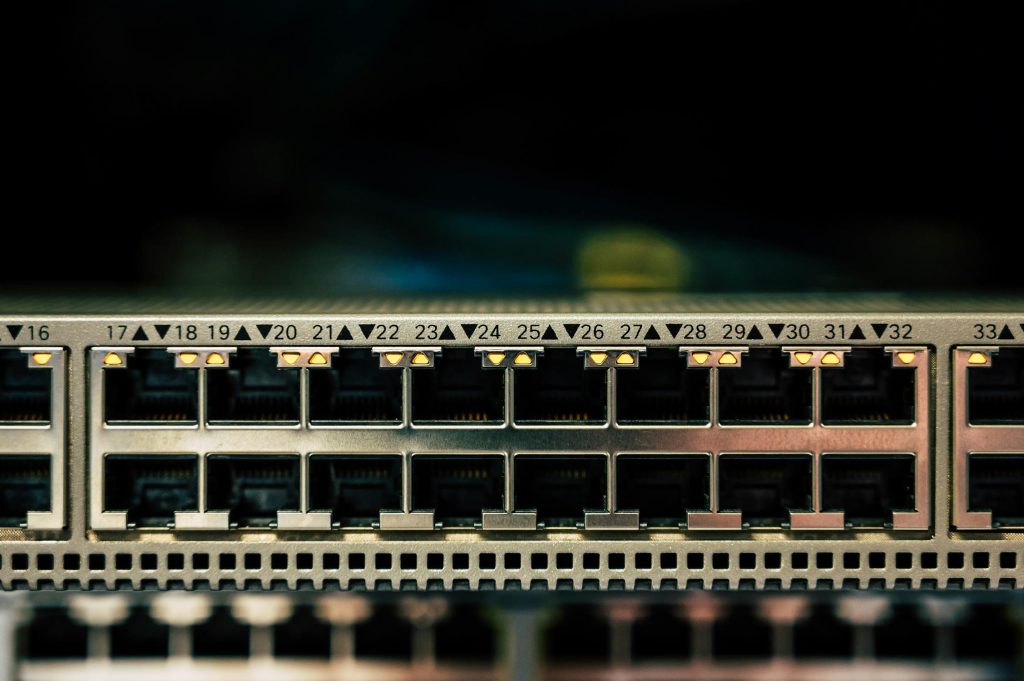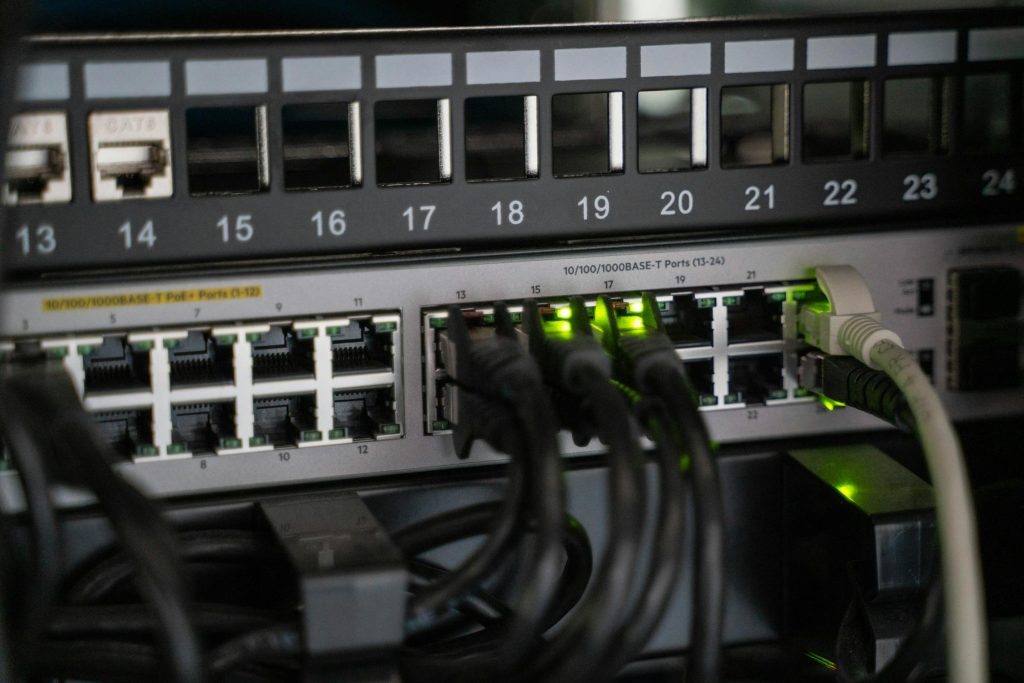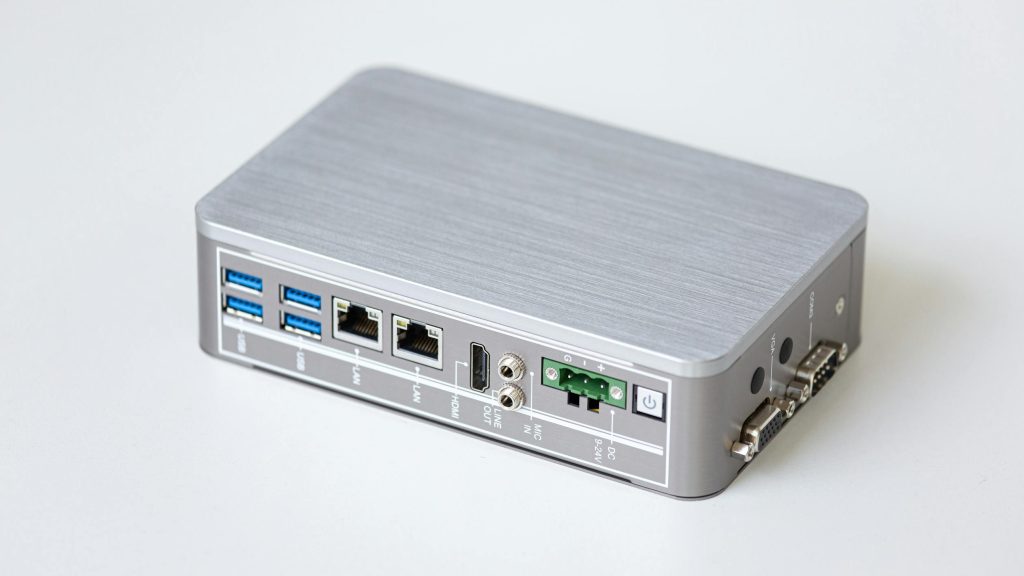Network Switches and Routers: Essential Devices for Seamless Connectivity
In today’s digital world, businesses and homes alike rely on robust networking solutions to connect devices, streamline operations, and maintain a productive environment. Two primary components of any network infrastructure are network switches and routers. While they may seem similar, these devices serve distinct purposes and are often used together to create efficient, secure, and reliable networks.
This guide will cover everything you need to know about network switches and routers, including their functions, types, and key brands available on the market today. Whether you’re setting up a home network or managing a complex business infrastructure, understanding the role of switches and routers is essential.
What is a Network Switch?
A network switch is a device that connects devices within a local area network (LAN) and facilitates communication between them. Switches play a crucial role in directing data packets to their correct destinations within a network. Unlike a hub, which broadcasts data to all devices, a switch identifies specific devices within the network and sends data only to the intended recipient. This efficiency improves speed, bandwidth usage, and security.
Types of Network Switches
There are various types of network switches, each designed for specific networking requirements:
- Unmanaged Switches: These are plug-and-play devices, ideal for home or small office networks. They require minimal configuration and are often budget-friendly. TP-Link and Netgear are well-known brands offering reliable unmanaged switches.
- Managed Switches: Managed switches offer advanced features such as VLAN support, quality of service (QoS), and security configurations. They’re widely used in enterprise environments where network traffic needs optimization and control. Cisco, Juniper, and Aruba are prominent names providing managed switches with customizable settings.
- PoE (Power over Ethernet) Switches: These switches deliver power through Ethernet cables to connected devices like IP cameras and wireless access points. PoE switches are commonly used in surveillance, VoIP, and wireless networking. Brands like Ubiquiti and Linksys are renowned for PoE switches.
- Stackable Switches: Stackable switches allow multiple switches to operate as a single unit, simplifying management and increasing scalability. They’re a popular choice in growing networks. Cisco and Dell offer high-performance stackable switches.
- Modular Switches: Modular switches are customizable, allowing users to add or replace switch modules as their network grows. Ideal for large enterprises, brands like HPE (Hewlett Packard Enterprise) and Extreme Networks specialize in modular switch technology.
What is a Router?
A router is a device that directs data packets between different networks, typically connecting a local network (LAN) to a wide-area network (WAN) or the internet. Routers analyze network traffic and determine the best path for data transmission, ensuring that information is delivered to the right destination.
Types of Routers
Routers vary in features and capabilities, depending on their intended use:
- Home Routers: These are designed for residential use and offer essential connectivity features, including Wi-Fi capabilities. Popular brands for home routers include ASUS, TP-Link, and Netgear, known for user-friendly devices with strong wireless coverage.
- Business Routers: Business routers support more connections, robust security, and advanced features such as VPN support and QoS. Cisco and Fortinet are leading providers of reliable and secure business routers.
- Edge Routers: Positioned at the network edge, these routers handle traffic between the internal network and the external internet. They’re common in larger organizations and service providers. Juniper and Nokia specialize in edge routers that handle high-speed traffic.
- Core Routers: Core routers form the backbone of a network and route data within a large-scale network. They’re mainly used by ISPs and large enterprises to support massive data traffic. Brands like Huawei and Alcatel-Lucent (Nokia) offer high-capacity core routers.
- Virtual Routers: These software-based routers run on a virtual machine rather than a physical device, offering flexibility and scalability for cloud-based networks. VMware and Cisco offer virtual routing solutions.
Key Features to Consider in Switches and Routers
When selecting a network switch or router, it’s essential to consider the features that will best meet your network requirements. Here are a few critical aspects:
- Bandwidth and Speed: Look for switches and routers that can handle the required data rates. Gigabit and 10 Gigabit Ethernet switches are common for business environments needing high-speed connections.
- Scalability: Consider switches that allow stacking or modularity for easy expansion. Routers that support adding multiple devices or larger WAN connections are essential for growing networks.
- Security Features: Many modern routers and switches include security features such as firewalls, VPN support, and port security. Managed switches offer advanced security settings, making them ideal for business networks.
- VLAN and QoS: VLANs (Virtual LANs) allow networks to be segmented, enhancing security and management. Quality of Service (QoS) prioritizes network traffic, essential for handling VoIP, streaming, or critical business applications.
- PoE (Power over Ethernet): PoE allows devices like IP cameras, phones, and access points to be powered directly through the Ethernet cable, simplifying installation and reducing the need for separate power sources.
Top Brands for Network Switches
Here’s an overview of some of the most popular brands that manufacture high-quality network switches for different needs:
- Cisco: Cisco is a leading name in networking technology, offering a wide range of managed, unmanaged, PoE, and stackable switches suitable for small businesses to large enterprises.
- Netgear: Netgear provides an extensive selection of user-friendly and affordable switches, including unmanaged and managed options for homes and small businesses.
- TP-Link: Known for budget-friendly networking devices, TP-Link offers reliable switches for homes, small offices, and medium-sized businesses.
- Aruba (HPE): A popular choice for enterprise networks, Aruba’s managed and modular switches are designed for scalability, security, and high performance.
- Ubiquiti: Known for its PoE switches and affordable enterprise-grade devices, Ubiquiti is popular among small businesses and home enthusiasts alike.
- Juniper Networks: Juniper focuses on advanced networking solutions, providing high-performance managed and stackable switches ideal for business networks.
- Extreme Networks: This brand specializes in modular and managed switches tailored for large-scale enterprise and data center environments.
Top Brands for Routers
Routers are available from various manufacturers, each with unique features suited for different environments. Here’s a look at some top brands in the router market:
- Cisco: Cisco’s routers are a staple in the business sector, offering advanced security, VPN capabilities, and high-speed connectivity.
- ASUS: ASUS offers an impressive lineup of home routers, known for high-speed Wi-Fi, gaming optimization, and easy setup, ideal for personal use.
- TP-Link: TP-Link’s routers range from basic home options to high-performance models with dual-band and mesh technology, providing reliable and affordable options.
- Netgear: With offerings like the Nighthawk series, Netgear focuses on high-speed, gaming-ready routers suitable for homes and small businesses.
- Juniper Networks: Juniper’s routers are designed for enterprise and ISP use, offering robust security and reliability.
- Fortinet: Known for its focus on cybersecurity, Fortinet provides routers with built-in firewall and VPN options, ideal for secure business networks.
- Huawei: Huawei provides high-capacity routers for core and edge applications, commonly used by ISPs and large enterprises.
- Nokia (Alcatel-Lucent): Nokia offers core and edge routers built for high traffic loads and scalability, ideal for large networks and telecoms.
Switches and Routers in Modern Networking
With the shift towards digital transformation and cloud computing, the demand for versatile and high-performance networking devices continues to grow. Many organizations are also adopting software-defined networking (SDN), which enables centralized management of network devices through software applications, enhancing flexibility and simplifying network configuration.
5G and Wi-Fi 6 technologies are further driving network requirements, making it essential for businesses to invest in switches and routers that support these technologies. Upgrading to devices with multi-gigabit ports, PoE capabilities, and SDN compatibility can future-proof a network against increasing bandwidth demands and enable smoother integration with IoT devices.
Choosing the Right Network Device for Your Needs
The right choice of switches and routers depends on your specific requirements. For small home networks, an unmanaged switch paired with a reliable home router is typically sufficient. For larger or more complex networks, managed switches and high-performance business routers are ideal, providing enhanced security, scalability, and control.
When selecting a brand, consider both the device features and the brand’s reputation for customer support, warranty, and ease of use. Cisco, Netgear, TP-Link, and other reputable brands offer a range of options suitable for different budgets and performance requirements.
Conclusion
Network switches and routers are fundamental to any networking setup, providing the connectivity and control needed to maintain efficient data flow within and between networks. Understanding the different types of switches and routers—and knowing which brands excel in various categories—will empower you to make informed decisions and optimize your network infrastructure.
Whether setting up a home office, enhancing a business network, or supporting a large enterprise, the right switches and routers can greatly enhance performance, security, and scalability. Explore options from






